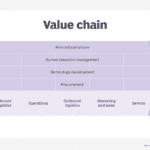Franchisor’s Common Mistakes
 Franchisor’s common mistakes.
Franchisor’s common mistakes.
While franchising can be a successful business model, franchisors can make certain mistakes that can hinder their growth and profitability. It is important for Franchisor’s Common Mistakes to be checked in order to take proactive measures to avoid them for a successful and sustainable franchise system.
FLAWED BUSINESS MODEL
The first common franchisor mistake is a FLAWED BUSINESS MODEL. The Franchisor must ensure that the business model is clearly defined, scalable, and capable of replication successfully across multiple locations. Failure to establish a robust system, processes, and operating procedures can lead to inconsistencies across franchise locations and difficulty in replicating success thus a short-lived franchise business.
INSUFFICIENT MARKET RESEARCH
INSUFFICIENT MARKET RESEARCH is the second common mistake. Oftentimes, a Franchisor rush into franchising without conducting thorough market research and feasibility study. Before offering a business to franchising, thorough market research is crucial. Franchisor needs to assess the demand for their products or services in different locations and ensure that there is a viable market for their franchise concept. Inadequate understanding of the target market results in ineffective franchise development and expansion thus an unsuccessfully sustainable franchise venture.
LACK OF COMPREHENSIVE FRANCHISE DOCUMENTATION
The third franchisor’s common mistake is LACK OF COMPREHENSIVE FRANCHISE DOCUMENTATION. Franchisors must develop comprehensive franchise documentation that is readily available such as the franchise agreement, operations manuals, training materials, and marketing guidelines. Incomplete or poorly drafted documentation can lead to misunderstandings, disputes, and legal issues down the line.
INEFFECTIVE FRANCHISE AGREEMENT
It is a fact that the fastest way to expand and grow your business is through franchising. Because the Franchisor rush into franchising, they have an INEFFECTIVE FRANCHISE AGREEMENT which is the fourth mistake. Franchisors must have well-drafted and balanced franchise agreements that protect both parties’ interests. Failure to address important aspects such as territory rights, royalties, marketing fees, and renewal terms can lead to conflicts and legal issues down the line.
POOR SELECTION OF FRANCHISEE
The fifth common mistake is POOR SELECTION OF FRANCHISEE. An individual or group who is willing to pay the franchise fee and all other fees required in order to start the franchisee business does not necessarily prove that he would be a good franchisee. Selecting the right franchisee is crucial for the success of the franchise business. Franchisors should have a rigorous selection process in place to ensure that the potential franchisee possesses the necessary skills, qualifications, and commitment in order to effectively operate the franchised business. Aside from this, Franchisor should also know the financial liquidity of the franchise. Choosing franchisees who lack the necessary skills, passion or financial liquidity can lead to underperforming units or non-compliant or early closures.
INADEQUATE COMMUNICATION AND COLLABORATION
Open and effective communication between the franchisor and franchisees is essential. INADEQUATE COMMUNICATION AND COLLABORATION, the sixth franchisor’s common mistake, can lead to disengaged franchisees and hinder the growth of the franchise system. The Franchisor must maintain effective communication channels with their franchisee to foster collaboration and address any concerns or issues promptly. Poor communication can lead to misunderstandings, discontent among franchisees, and a breakdown in the franchisor-franchisee relationship.
INADEQUATE TRAINING AND SUPPORT
INADEQUATE TRAINING AND SUPPORT is the seventh franchisor’s common mistake that Franchisors take for granted. Franchisees rely on the franchisor for initial training and ongoing support. If the franchisor fails to provide thorough training programs, ongoing assistance, and regular communication, it can hinder the success of franchisees as well as impact the overall brand reputation.
LACK OF MARKETING AND ADVERTISING SUPPORT
The LACK OF MARKETING AND ADVERTISING SUPPORT is the eighth Franchisor’s Common Mistakes. Insufficient marketing support limits the brand’s visibility which impacts the Franchisees’ sales and hinders the overall success of the franchise system. Oftentimes this is the complaint of Franchisees.
INSUFFICIENT FINANCIAL PLANNING
Franchisors need to have a solid understanding of the financial aspects of the franchise system. INSUFFICIENT FINANCIAL PLANNING, the ninth franchisor mistake, including inaccurate initial investment estimates, royalty structures, or franchisee profitability projections, lead to financial challenges for both franchisors and franchisees.
LACK OF CONTINUOUS IMPROVEMENT
Lastly, LACK OF CONTINUOUS IMPROVEMENT. Successful franchisors continuously evaluate and improve their systems, processes, and support mechanisms. Failure to adapt to changing market conditions, innovate, or invest in continuous improvement can make a franchise system stagnant and loss of competitiveness.
It is important for franchisors to be aware of these Franchisor’s Common Mistakes and take proactive steps to avoid them. Learning from the experiences of others and seeking professional advice can significantly enhance the chances of building a successful franchise system.




This Post Has 0 Comments